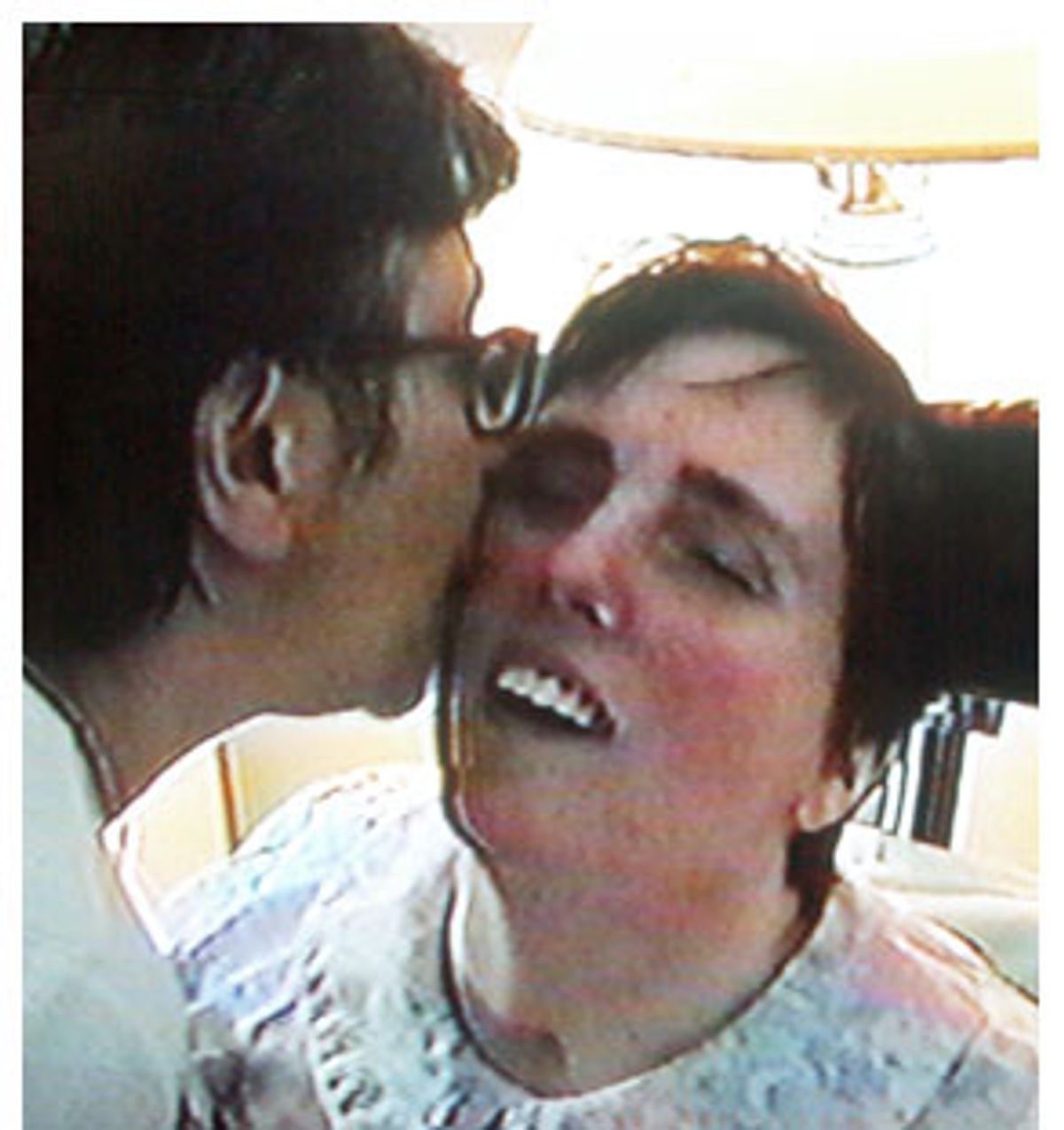Sitting on the cold, shiny linoleum, we forced our smiles and took turns introducing ourselves to the other parents who had reluctantly joined us in the "winner's circle." Life's lottery had awarded us all with gifts -- our children with special needs. Our daughter, born with severe oxygen and nutritional deprivation because of an undiscovered clot in my placenta, could do little else but blink and cry, but we had hope that with the intervention program we'd signed up for, Stacy, then almost a year old, would in time become the normal little girl of which we'd dreamed.
The war stories we shared among us highlighted people's courage in the face of adversity: the mother of a child with cerebral palsy who was struggling to make ends meet after her husband, unable to cope, abandoned the family. The parents who chose to try once again for a child who didn't carry the genetic abnormality that had devastated the health of their first son. The big-boy 5-year-old who tenderly stroked the forehead of his baby brother as their mother fed her little one born without enough oxygen and unable to swallow through a G-tube (feeding tube).
Over the next few years, many of us would graduate from our seats on the floor. The luckiest parents saw their children grow and develop, if not to "normality," then to a level allowing them to be fully included in school -- and the world. Others of us sought full-time care for our children, whether at our homes or foster homes, special educational facilities, hospices or other institutions.
Our daughter's progress was much slower than we'd expected -- yes, she could now swallow puréed food, turn over and drink from a bottle, but walking and talking seemed out of her reach.
Was life difficult for us, we parents and children? Most of the time, yes. Did we wish fervently that our children had been normal? Almost always, yes. Did we ever wish that our children hadn't been born? In the dark of a long night, once in a while, yes. Did we ever wish that our children would die? In the darkness of our souls, perhaps. Would we ever do anything to bring about that end? In our humanity, I would say never.
Today, our humanity is perched on the precipice of a slippery slope. A disabled woman in Tampa, Fla., breathing on her own and cared for by her parents, is to be denied a simple feeding tube, thereby hastening her death and freeing her husband to marry his fiancée and the mother of his two children. Terri Schiavo is no longer convenient in her husband Michael's life, and so is to be sentenced to a passive execution.
Terri's cause has been adopted by religious conservatives with passionate advocacy. I am neither religious nor conservative, but as a compassionate progressive, I believe the Schiavo case spotlights a critical juncture in the preservation of a humanistic and humanitarian culture: Allowing Terri to die via starvation belies and mocks the ethics and principles of a civilized society.
As a doctor, I have cared for patients who have chosen, in sound mind and in good conscience, not to prolong their lives via extreme measures. Their decisions were documented in written contracts, often after intensive counseling and personal consideration. Hearsay communications from potentially interested parties, however, are not an acceptable substitute. In the absence of a living will, I remain committed by my Hippocratic oath (an ethical code for the medical profession that prohibits doctors from causing any harm) and duty to my profession to do the utmost for my seriously ill patients.
My husband and I have given up much of our lives -- physically, emotionally and financially -- to give Stacy her share of hers. As a mother, I have cared for my daughter when she couldn't swallow, when she couldn't smile, when we had no hope. Her life today at age 13 is simple: sitting, crawling, giggling, playing with noisemaking toys. We still feed her, spoonful by spoonful, and tend to her toileting needs. We had dreamed she would dance among the stars, yet are grateful when we see her smiling up at us as she plays freely on the linoleum floor.
Although I would not choose her life, it would be the hubris of "normality" for me -- or her father, doctors and nurses -- to place a value on it, to judge that her life is not worth our efforts to keep her alive and help her grow.
Terri Schiavo did have a "normal" life for many years, and like so many who used to be "temporarily able-bodied" (a phrase used by some in the paralyzed community) and clear-minded, now she doesn't. From the vantage point of normality, the quality of life of those with severe mental or physical losses like hers may seem devastatingly negative. But those who are disabled often perceive the quality of their life very differently -- and positively. We don't suggest that quadriplegics be starved because they can no longer feed themselves; neither should we foist that fate on Terri. Making a decision, as her no-longer-committed husband has, that implies that Terri's life today has no value opens the door to similar judgments about so many others whose life isn't normal. All sorts of people, fellow humans, with special needs -- paralyzed, developmentally delayed, seriously ill, elderly, my Stacy -- could be next on the list of the devalued and inconvenient.
As Pearl Buck, noted author of "The Child Who Never Grew," wrote a half-century ago, "Euthanasia is a long, smooth-sounding word, and it conceals its danger as long, smooth words do, but the danger is there, nevertheless." The removal of a feeding tube is not just an end but the beginning of the end of a humanitarian society.



Shares